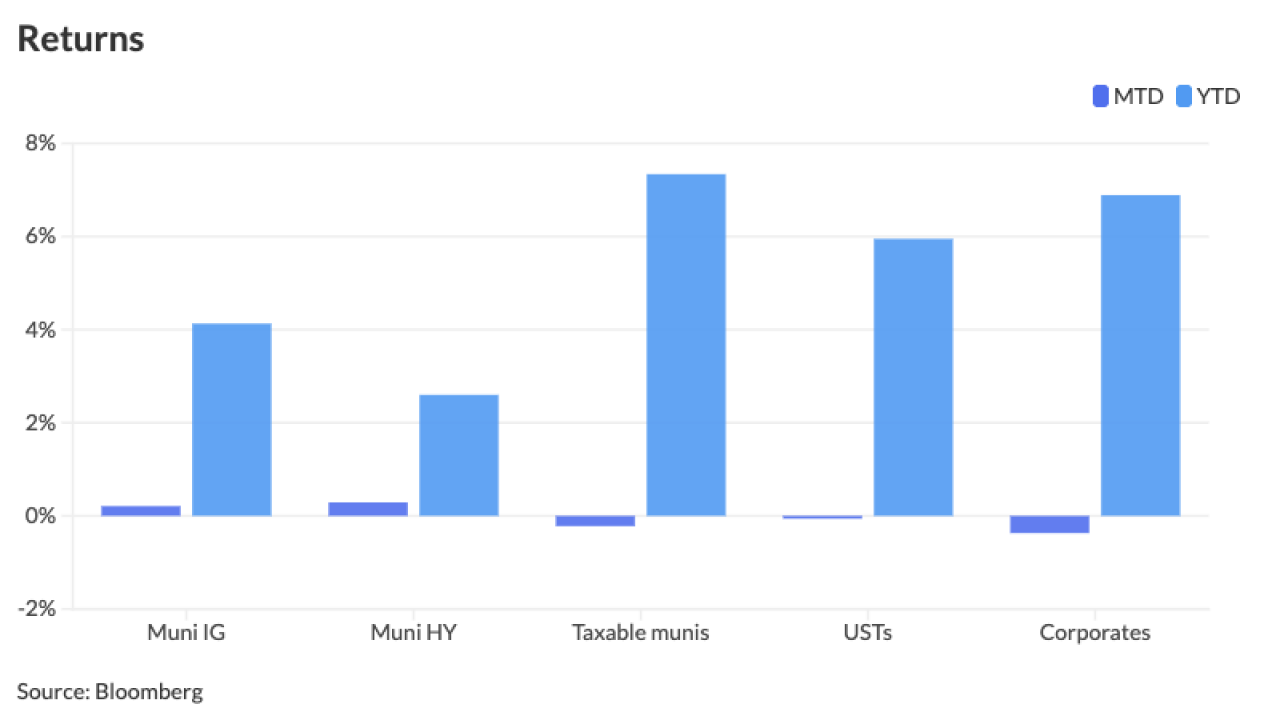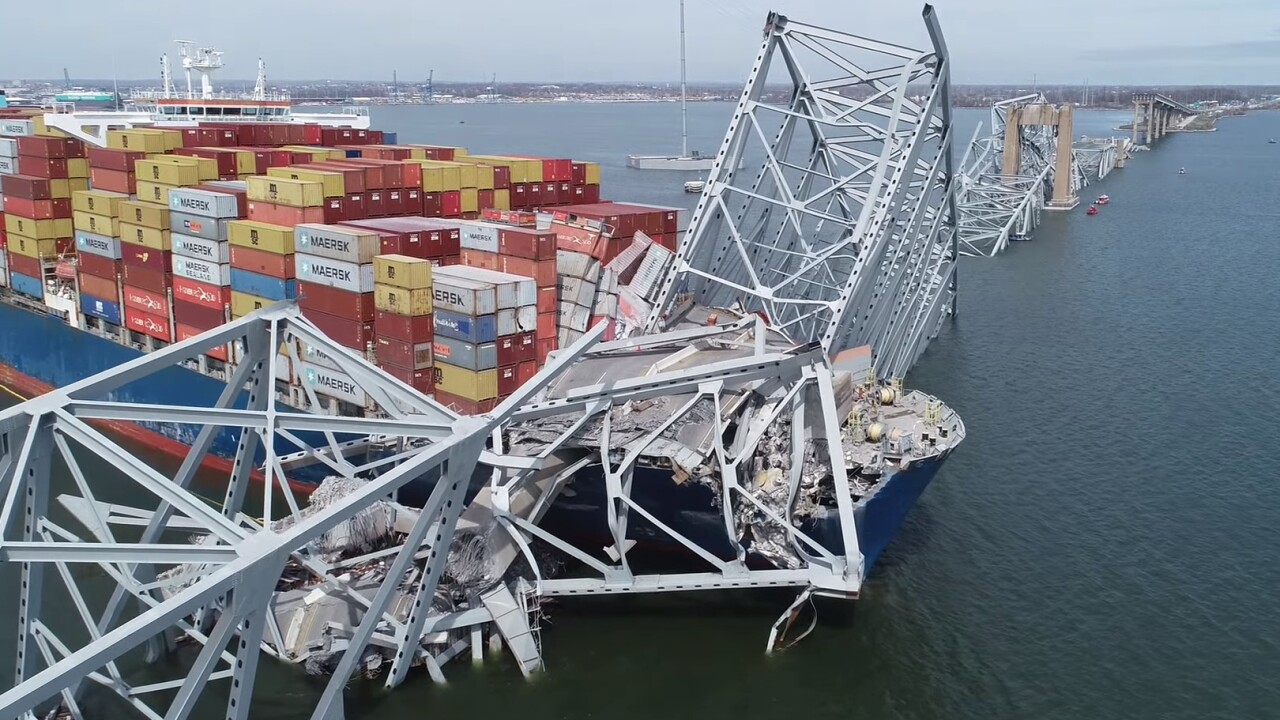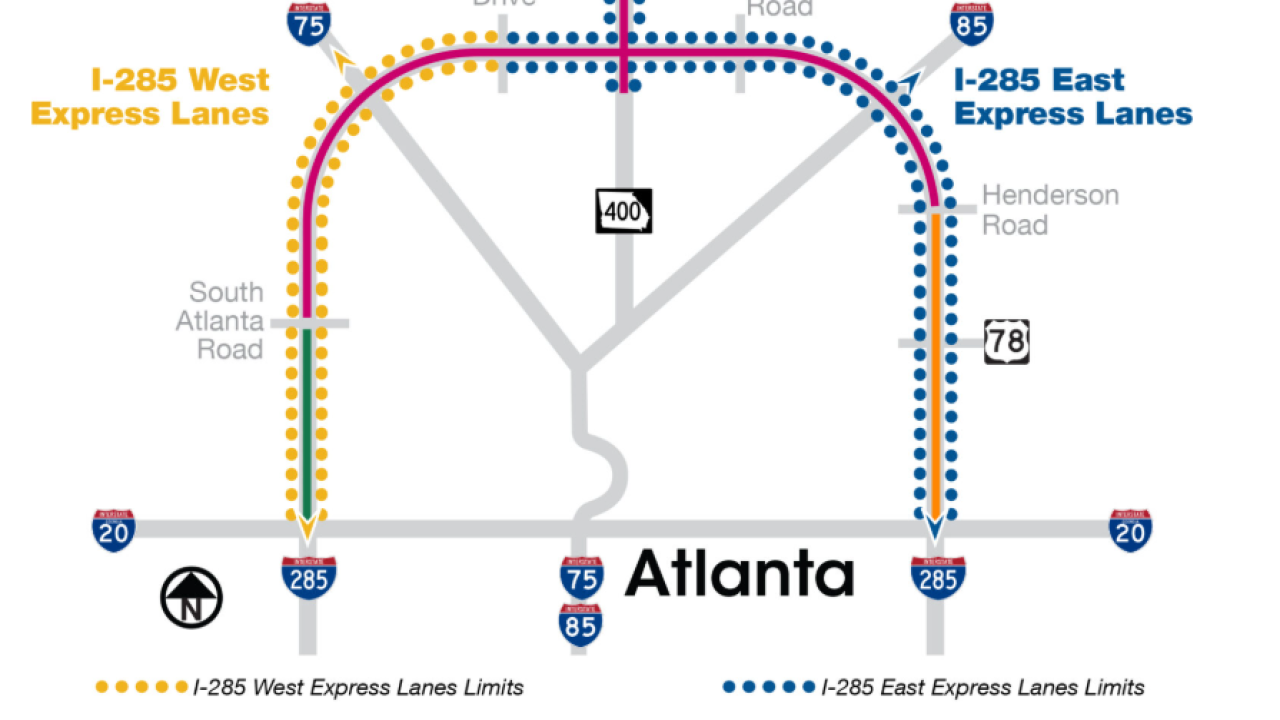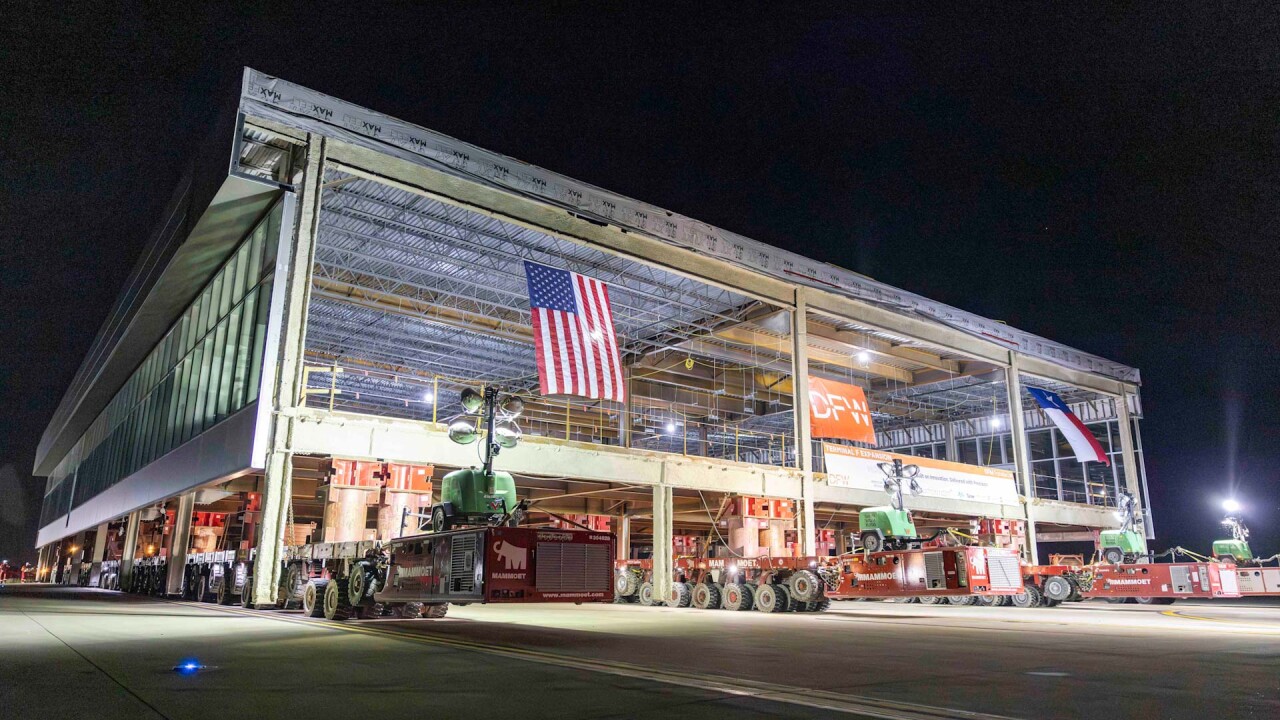WASHINGTON — The Trump Administration's decision to strip funds from the California high-speed rail project leads to a potentially dangerous politicized approach to financing infrastructure, sources said.
On Tuesday, the Trump administration said it was terminating a $929 million dollar federal grant to the California High-Speed Rail Authority, according
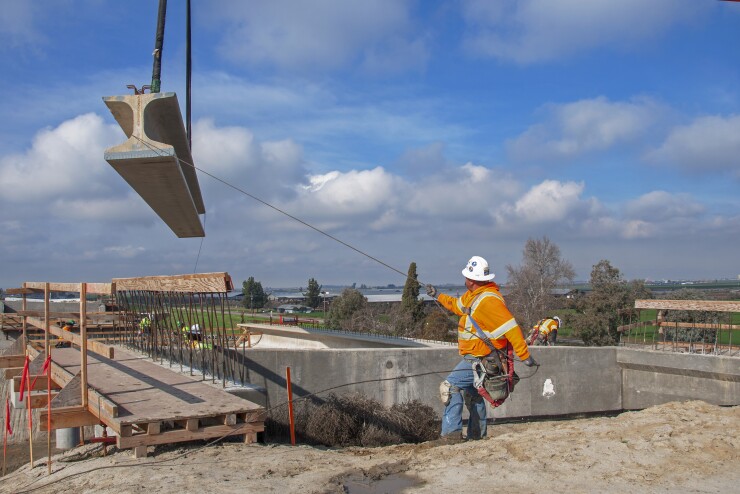
"I think it’s a scary precedent in terms of federal funding for transportation projects," said a public finance attorney, who asked to not be named. "It seems like this project is being used in the broader fight over border funding. There is a lot more happening here than just some big rail project in California."
The American Association of State Highway and Transportation Officials, American Association of Port Authorities and Municipal Market Analytics Inc. declined to comment, some citing a desire to see how the situation pans out before speaking up..
California voters authorized $9.9 billion of bond authority for the project in 2008, and the state
The rail project in California has been the most politicized of other recent rail projects in Texas and Florida, said Joseph Krist, a partner at Court Street Group Research. He called the termination troublesome and added that little discussion seemed to be centered around “pure fact.”
“In terms of big things, whether it’s transportation, whether it’s power plants, whether it’s water regulation, there just seems to be very, very political bend to the opposition,” Krist said. “They tend to ignore facts.”
Infrastructure could lean more towards other funding options such as public-private partnerships, Krist said because they get better support. He used airports as an example such as airports in Missouri that are taking advantage of private partners for new terminals and airport improvements.
In a February Fitch Ratings report, analysts wrote airport privatization options are becoming more accepted in the U.S.
Earlier this month, Kansas City International Airport reached an agreement in a public-private partnership on a $1.5 billion terminal overhaul. In 2018, St. Louis Mayor Lyda Krewson advocated for privatizing Lambert St. Louis International.
Private enterprise should have a role in future infrastructure funding, Krist said.
“Regardless of what my personal preferences or views might be, these decisions become so politicized, it’s getting in the way of rational solutions through infrastructure on almost any level right now,” Krist said.
Ports aren’t getting as high of a priority as other sectors like rail and road, and competing for federal grants makes it difficult to rely on federal funding, said Brad Julian, a partner at Capstan Consulting, a managing consulting firm that specializes in maritime and transportation sector.
Though Julian couldn’t speak specifically on the elimination of the California grant, he said ports reliance on federal funding is usually seen as plan B or plan C because the chances of receiving a grant are low.
“I think what could help make federal funding more impactful is somehow making the process a bit more predictable where ports can somehow count on a higher probability of receiving funds and a shorter, less complicated process to getting there,” Julian said.
He suggested creating more geographical funding programs so that ports don’t have to compete on the national level.
“If federal funding were made more specific to maybe geographic areas based on priorities preset by the federal government, then they would have more of a catalyst effect as opposed to just a cost reduction effect, in my opinion,” he said.
Marc Joffe, senior policy analyst at the libertarian think tank Reason Foundation said politicizing the California rail project halts dialogue.
“When that happens you can’t have a very constructive dialogue about what the best thing to do is, it’s sort of a gotcha kind of thing,” Joffe said. “It probably makes some sense to spend money to approve passenger rail in California.”
He referred to the Brightline rail project in Florida, which is using private activity bonds as a source of funding, and said it should be used as a template. That would have a better outcome than current funding for the California project, Joffe suggested.
“Can you find a private company that’s willing to invest in improving passenger service in certain corridors in California so that they take the risk and the taxpayer doesn’t take the risk?” Joffe said.
Keeley Webster contributed to this report.
